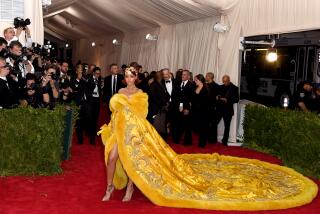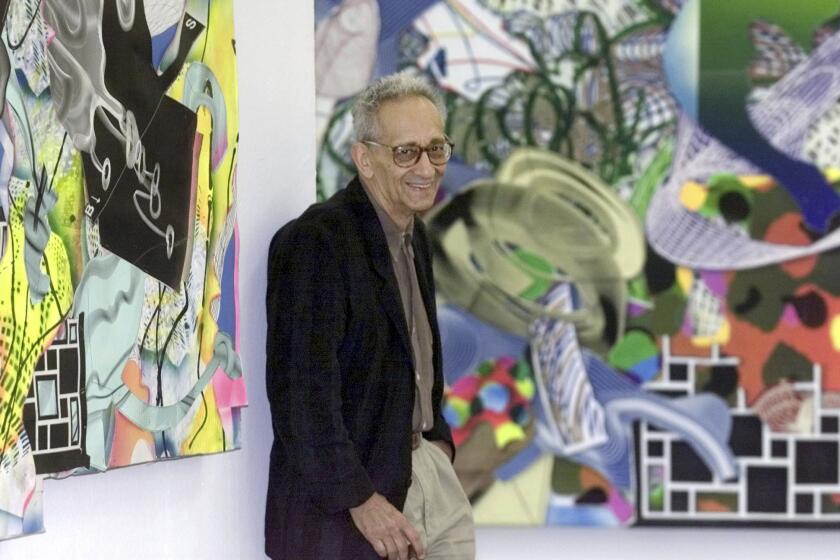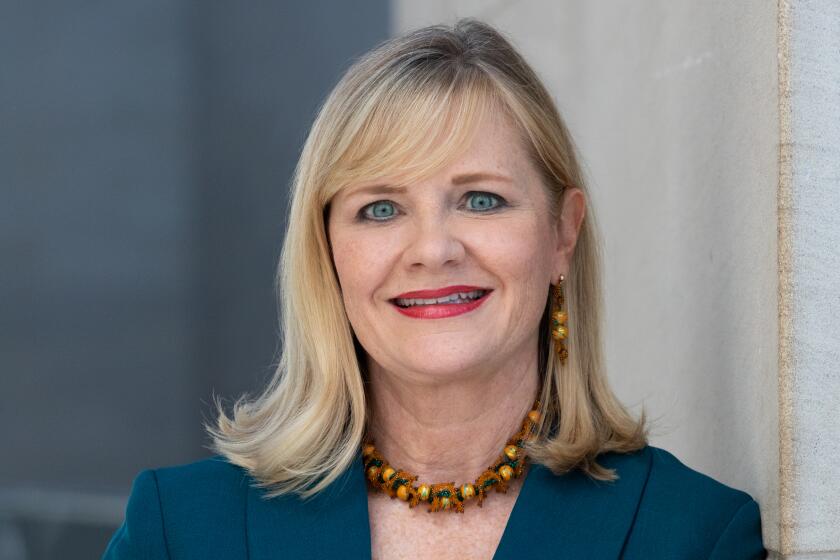Politics-of-gender agenda set by women
Women have always defined the sexual politics of modern dance, and the four female- directed companies that appeared in the latest edition of “Split: Dance In and Out of L.A.” offered a kind of seminar on the subject Saturday at the Alex Theatre in Glendale.
Michigan-based choreographer Laurie Eisenhower provided the most dramatic extremes. In the lilting “Ceilidh,” for example, buoyant cock-of-the-walk Philip Leete initially partnered four women -- but those women later achieved solidarity and even sisterhood without him.
In “Trilogy,” the Eisenhower Dance Ensemble featured a female Jesus (Stephanie Pizzo), but this contemporary meditation on key events in Christian history suffered from too much lightweight solo dancing to be wholly persuasive.
Eisenhower’s structural suavity and the skill of her dancers found stronger expression in the social panorama “Stop,” with sexual tensions erupting among her six-member cast even in same-sex partnerships, and the sense of relationships as a trap conditioning the impressively restless, shifting group patterns.
Pat Taylor took that feeling and heightened it in the powerful excerpts from her “A Love Supreme,” danced with equal parts emotion and virtuosity by her locally based JazzAntiqua Dance and Music Ensemble. Men and women looked one another over warily, longingly or resentfully here, trying to walk nonchalantly but bursting into intense solos -- none more convulsive or scary than Tommie Evans’ freakout.
Men became forces of discord in Deborah Brockus’ large-scale music visualization “Clouds,” dominating the choreography whenever the Dvorak accompaniment grew threatening. In one trio, however, she proved that a woman (in this case, Brockus herself) could match their force.
A more benign masculinity surfaced in her jazzy “Indigo Night,” though even here the three men in her L.A.-based Brockus Project Dance Company coldly manipulated the six women before moving back into macho self-absorption.
Local choreographer Rei Aoo dressed women as men in “Horsemen in Wilderness” but seemed to have nothing in mind other than creating a relentless, impersonal technical showcase.
In her dance drama “Hypocrites,” the members of Rei Aoo’s Dance Planet looked like suburban matrons but turned into avenging furies when Aoo refused to conform. The same-sex casting and costuming again made no specific point, but at least Aoo suffered oppression poignantly.
The Saturday performance marked the end of the first, four-part “Split” season at the Alex, valuable not only for granting local audiences a first look at excellent regional companies such as Eisenhower’s but also providing a large stage for emerging locals. But its greatest achievement could well be the enhanced administrative experience it gave to co-producers Brockus and Daisy Kim: women with an agenda regarding concert dance in Southern California and a growing arsenal of talents to make that agenda a reality.
More to Read
The biggest entertainment stories
Get our big stories about Hollywood, film, television, music, arts, culture and more right in your inbox as soon as they publish.
You may occasionally receive promotional content from the Los Angeles Times.






